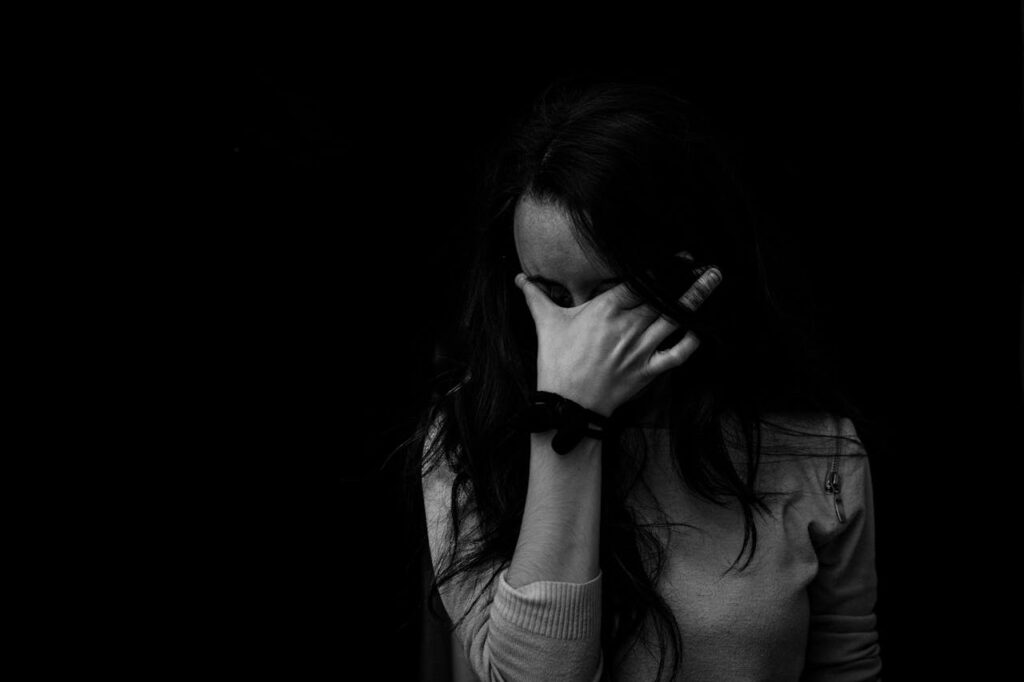Children are extremely resilient, yet trauma at an early age can have a lifetime impact. Initial intervention is critical but does not always occur. Fortunately, proper childhood trauma therapy may help anyone who has experienced trauma heal no matter how long ago it occurred. Survivors of childhood trauma often ask whether they should seek therapy to heal from their problems. Therapy heals and helps survivors work out the effects of the traumatic experience, including:
- Abuse and community violence
- Natural disasters
- Neglects
- Unexpected loss of a loved one
Childhood trauma can cause a variety of teenage and adult problems, but there is a simpler remedy than you might believe. This article explores childhood trauma, its repercussions, and how treatment might assist.

Image Source: Unsplash
Defining Childhood Trauma
Childhood trauma refers to an event or series of events that greatly terrify a youngster. These occurrences are usually violent and dangerous. Many frightening experiences can traumatize a youngster, including molestation, vehicle accidents, home invasions, and even natural disasters.
Some youngsters don’t have time to heal.
Their lives are constantly filled with horrific experiences. Physical, sexual, and emotional abuse, bullying, and risky living conditions can have a long-term impact on the mental health of a child.
Childhood traumas might also result from watching horrific events. For example, watching a loved one die from an extended illness can be quite traumatic. Not all negative experiences are devastating, either. Divorce, the death of an older relative, and the loss of a pet rarely cause long-term trauma. Trauma of any sort, however, may leave a lasting impact.
Effects of Childhood Trauma
Traumatic childhood experiences alter brain development and hence result in severe emotional, psychological, and social problems in adolescence and adulthood.
1. Physical Impacts
The traumatic situations can damage a child’s physical development. When the immunological and central nervous systems are immature, we are almost unable to realize our full potential.
Children who have experienced acute trauma are less likely to develop the abilities needed to cope with even little pressures in their lives. They struggle with challenges at school that other children do not, and they demonstrate behavioral disorders and difficulty expressing anger in a healthy manner.
According to research, children who have multiple bad experiences are more likely to develop sickness later in life. They may have weaker immune systems and develop diseases that they would not normally contract. The most prevalent conditions that manifest include:
- Diabetes
- Stroke
- Heart disease
- Asthma
- Autoimmune disorders
- Cancer
2. Post-traumatic Stress Disorder (PTSD)
This is another stress disorder for children who witness traumatic events. Many traumatized youngsters will acquire this disorder, which leads them to relive the horrific incident through constant flashbacks.
Children with PTSD exhibit symptoms such as headaches, scholastic difficulties, insomnia, and a variety of psychiatric problems. Virtual mental health services are specially designed for children who are suffering from these issues.
3. Psychological Impacts
Adverse childhood experiences have a substantial effect on mental health. Sufferers may have symptoms such as:
- Depression
- Anxiety
- Anger management issues
- Psychotic disorders
- Separation anxiety
- Poor appetite
- Withdrawal from social activities
Many of the psychological effects of childhood trauma are indicators of PTSD.When a youngster exhibits several of these symptoms, he or she should be examined thoroughly. Traditional or virtual therapy services of treatment are effective for healing childhood trauma.
Types of Therapy for Childhood Trauma
Healing childhood trauma can be a long process, but there are many successful types of therapy that help address symptoms related to trauma. Online therapy for anxiety is a kind of therapy used depending on the nature of the trauma, how long ago it happened, and the person’s specific needs. Some of the most effective childhood trauma therapy are the following:

Image Source: Pexels
1. Eye Movement Desensitization and Reprocessing (EMDR)
This therapy includes a few sessions of classical talking therapies or talk therapy. And also shows the manner in which the brain treats a traumatic memory. This makes it possible to treat trauma that had previously not been treated using repetitive eye movements in reshaping frightening and traumatic memories.
2. Cognitive Behavioral Therapy (CBT)
This therapy is effective if the trauma is new rather than many years old. It is more focused on goal formulation and effective ways to achieve them through take-home assignments. It is very useful in the treatment of symptoms of PTSD.
3. Dialectical Behavioral Therapy for Children (DBT-C)
This targets young people who cannot control their emotions, which are strong. It tries to determine the root cause of such behaviors as lashing out, thinking in facts, overreacting, and acting impulsively.
4. Prolonged Exposure (PE)
This behavioral treatment assists patients in confronting the source of their trauma. Avoidance problems usually arise after a distressing encounter. PE helps people overcome their avoidances by tackling the root causes.
Childhood trauma therapy varies depending on what kind of trauma occurred, how long the trauma ensued, and how much time has passed. Consult with a therapist to understand which treatment would best work for you. Appropriate therapy may always lead to healing. The future appears brighter than ever.
Conclusion
The unfortunate things that happen to us as children do not have to stick around forever. Therapy helps to heal the past and confidently move forward. Lynsey Retzlaff provides comprehensive therapy to anyone who does not feel as connected to life as they would like.
From childhood traumas to food and sleep disorders to addictions, anxiety, and relationship issues, there is a type of therapy that can help you to feel better yourself in both group and individual sessions.
FAQ’s
1. Can adults heal from childhood trauma?
Yes, with the appropriate therapy, people can start living again and learn how to overcome and recover from the effects of their traumatic experiences, which gives way to a better life in the future.
2. How does someone handle childhood trauma into adulthood?
Understand the impact of trauma, seek professional treatment, participate in appropriate therapy, and form a support network.
3. What are the different types of childhood traumas?
Common are physical, sexual, and emotional abuse. Physical and emotional neglect; exposure to marital violence; household substance misuse; and household mental illness.
Be the first to comment